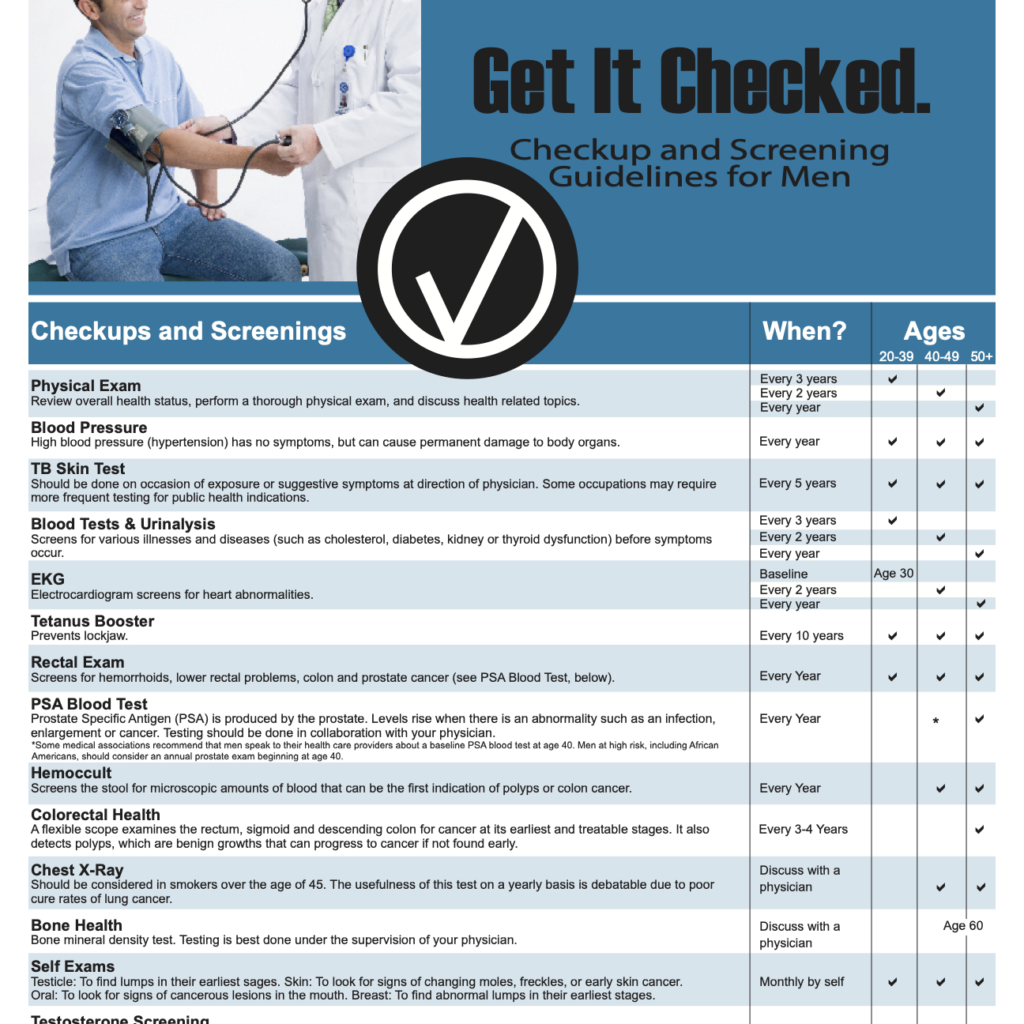Empower yourself with healthy habits for a better life.
Guest post by Hema Cherukooru
Every June, Men’s Health Week (usually the week leading up to and including Father’s Day) focuses on highlighting awareness of preventable health problems and encourages early detection and treatment of disease among boys and men. This week provides an opportunity for providers, the media, public policy makers, and individuals to encourage boys and men to get regular medical advice and early treatment for injury and disease. According to the CDC, in the US men on average die five years earlier than women, and the three leading causes of death are: heart disease, cancer and unintentional injuries.
Risk Factors and Nutrition Tips
Heart disease is the number one cause of death in men. A balanced diet is crucial for men’s overall health and well-being. Focus on incorporating a variety of nutrient-dense foods such as lean proteins, whole grains, fruits, and vegetables. Omega-3 fatty acids, found in fish and flaxseeds, are important for heart health, while fiber-rich foods can help maintain healthy digestion. Regular hydration and limiting processed foods, sugary beverages, and excessive alcohol consumption can also contribute to optimal health. Tailor your dietary choices to your specific lifestyle and health goals for the best results.
Prostate Health and Dietary Considerations
Maintaining prostate health is a significant concern for many men, especially as they age. Consuming a diet rich in fruits, vegetables, and healthy fats can support prostate health. Foods high in antioxidants, like tomatoes (which contain lycopene), and cruciferous vegetables, such as broccoli and Brussels sprouts, may reduce the risk of prostate issues. Additionally, limiting red and processed meats and focusing on plant-based proteins can be beneficial. Regular screenings and a healthy diet can help manage prostate health effectively.
Maintaining a Healthy Weight: Men’s Perspective
Achieving and maintaining a healthy weight is vital for preventing chronic diseases such as diabetes and heart disease. Men should aim for a balanced diet that includes sufficient protein to support muscle mass, which is crucial for metabolism. Incorporating regular physical activity, such as strength training and cardiovascular exercises, can aid in weight management.
Consider the following:
- Increase physical activity (with medical clearance, of course) by including every week a regular exercise routine of at least 150 minutes of moderate intensity aerobic exercise or 75 minutes vigorous aerobic exercise. Include muscle strengthening activity twice a week. Regular exercise helps prevent heart disease, maintain a healthy weight, and improve physical and mental well-being.
- Mindful eating practices, such as portion control and avoiding emotional eating, can also play a significant role in maintaining a healthy weight.

Cancer Prevention and Management
According to the CDC, about 15.3% of men aged 18 and over smoke, and about 30.9% aged 18 and up drink 5 or more drinks in one day, at least once in the past year (2018). Smoking causes cancer, stroke, heart disease and are at a greater risk for erectile dysfunction. Smoking and second-hand smoking increases risk of many types of cancer. Consumption of excessive alcohol and other recreational or habitual drug are other health-damaging behaviors. Some men use anabolic steroids to increase muscle mass and can lead to serious health consequences. It is important to seek the help of a doctor to break any unhealthy habits.
Melanoma is a skin cancer, the risk increases in men over 50 years and higher among Caucasians. Some of the precautions when outside would include: spending time in shade, use of sunscreen with SPF 30 or higher, reapplying sunscreen in case of sweating or swimming once in every 2 hours, and wearing protective clothing. Avoid tanning beds as they are a harmful source of UV radiation.
The most common cancer diagnosis among American men over the age 50 is prostate cancer followed by colorectal cancer. Prostate cancer is associated with signs of trouble urinating, developing pain when urinating, or the presence of blood in urine. Blood tests, prostate exam, and colonoscopy may be recommended, so please consult with your doctor for further information.
Checkups and Screenings
As men age, their nutritional needs change. Ensuring adequate intake of calcium and vitamin D is essential for bone health, while protein remains important for muscle maintenance. Omega-3 fatty acids and antioxidants can support cognitive health, and fiber can aid in digestion. Staying hydrated and maintaining a balanced diet with a variety of nutrients can help aging men stay vital and active.
Consulting the doctor is an important preventive measure. Regular check-ups and tailored dietary plans can address specific health concerns associated with aging, and can also help catch small problems before they manifest themselves into bigger problems. It also helps to monitor blood pressure, weight, cholesterol in the blood and other factors that you and your doctor determine to be necessary.

The More You Know
Dietary supplements and other natural products are promoted to address men’s health issue, however there is no scientific evidence on the effectiveness and safety of these supplements.
Finally, seek a mental health professional in case help is needed. Mental health is as important as any other health problems.
Men’s health month is created to bring awareness and practice healthy habits in boys and men. Men are less likely to seek medical attention than women and more likely to smoke, drink too much alcohol, and make risky and unhealthy choices. Dedicating June to men’s health helps to focus on health problems and barriers and how to overcome them. Healthy eating, exercise, and consulting a doctor can help with achieving good health status.
Take charge of your health! Wear blue in June to support your dad, brother, spouse, boyfriend, friend, or boss to show that you care and support them. And visit the resources/sites listed below for further information.
Hema Cherukooru is a dietetics student at the University of Northern Colorado pursuing a Bachelor’s Degree in Dietetics.

References
- HHS.gov (5/29/2020). Minority health. Retrieved May 10, 2021, from https://www.minorityhealth.hhs.gov/omh/content.aspx?ID=10238#:~:text=June%20is%20Men’s%20Health%20Month,as%20exercising%20and%20eating%20healthy.
- CDC.gov (April 14, 2021). Men’s Health. Retrieved May 10, 2021, from https://www.cdc.gov/nchs/fastats/mens-health.htm
- Health.gov (October 15, 2020). Take Action: Healthy habits. Retrieved May 10, 2021, from https://health.gov/myhealthfinder/topics/doctor-visits/regular-checkups/men-take-charge-your-health
- Healthline.com (December 2, 2016). What do you want to know about Men’s Health? Retrieved May 10, 2021 from https://www.healthline.com/health/mens-health#diet
- NCHP.org. National Men’s Health Month. Retrieved May 11, 2021, from https://www.nccih.nih.gov/health/mens-health
- Men’s Health network (n.d.). Wear Blue. Retrieved May 12 , 2021, from https://www.menshealthnetwork.org/wearblue/
- Men’s health month (n.d.). Men’s health week. Retrieved May 14, 2021 from https://www.menshealthmonth.org/week.html



0 Comments